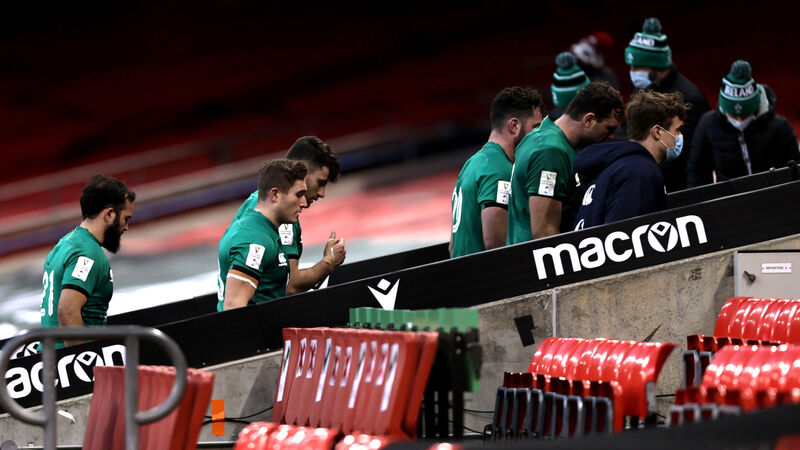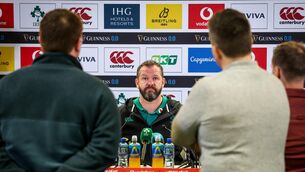Donal Lenihan: What Ireland need now, on and off the field, are cool heads

Ireland players leave the field dejected after the game. Picture: INPHO/Laszlo Geczo
There was a lot more at stake for Ireland, and by extension head coach Andy Farrell, than vital Six Nations points when his players took to the field at a deserted Principality Stadium in Cardiff yesterday.
Fifteen months into his reign, this is now his team, playing his style of rugby. Even allowing for the havoc the global pandemic has caused on the way he would have liked to go about his early body of work, Farrell has had sufficient time to make this team his own. This campaign will define how far down the road he has travelled, this opening game a pivotal moment on that journey.










